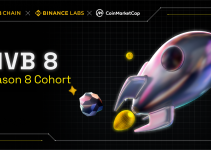
What is BSC-Ethereum Bridge
To enable the value flow between BSC and Ethereum, especially for the tokens not listed on existing cross-chain tools: Binance Bridge, https://multichain.xyz/ or https://www.curvegrid.com/, we propose an open source solution providing access to inter-blockchain liquidity.
Codebase
- Swap service: https://github.com/binance-chain/bsc-eth-swap
- Swap contracts: https://github.com/binance-chain/eth-bsc-swap-contracts
This is a unique solution to build an application built between Binance Smart Chain and Ethereum. The cross-chain bridge simply serves as a method of bidirectionally transferring ERC20/BEP20 tokens between the Ethereum Network and Binance Smart Chain network in a quick and cost-efficient manner.
The fees for users can be quite low. The Ethereum to BSC transfer will result in the creation of a newly minted token on the BSC blockchain known as BEP20. The user will also have the ability to transfer BEP20 tokens from the BSC network back to the Ethereum Network, which would result in the burning of the BEP20 token and subsequent unlocking of the original ERC20 token on the Ethereum Network.
Bridge Elements
The following graph describes that a new ERC20-to-BEP20 bridge will work like this: the swap service server listens to one of the chains (one side of the bridge) to watch the bridge-related events, performs actions to approve swap requests in from of collecting signatures from the swap proxy contracts and sends tokens to another side of the bridge.
Swap Service
- The service keeps watching the swap request events on both chains and sends transactions to swap proxy contracts on both chains.
- The server monitors register events to issue mirrored assets (tokens) on the Binance Smart Chain.
Ethereum chain side:
- There is a swap contract deployed on Ethereum mainnet
- the contract receives requests from the server to lock/unlock a number of ERC20 tokens
- it is possible to collect fees
Binance Smart chain side:
- There is a swap contract deployed on Binance Smart Chain
- the contract receives requests from the server to mint/burn a number of ERC20 tokens
- it is possible to collect fees
Example of user operations
Register ERC20 token to Binance Smart Chain
- Alice created an ERC20 token on Ethereum mainnet
- Alice called `register` function to create its BEP20 equivalents
- Swap service server received `register` event. As result, a BEP20 token will be created on the bsc and the bsc swap contract is the owner of the BEP20 token. It has zero supply
Ethereum to Binance Smart Chain
- Bob received some tokens from Alice and he wanted to swap to BEP20
- Bob called a method `swapETH2BSC` from ETH swap contract. The arguments of the method `erc20Addr` and `amount`.
- Swap service server received `deposit` event and minted the same amount of BEP20 token
- The newly minted BEP20 token was sent to Bob on BSC
Binance Smart Chain to Ethereum
- Bob wanted to swap back his token to ERC20.
- Bob called a method `swapBSC2ETH` from BSC swap contract. The arguments of the method `bep20Addr` and `amount`.
- Swap service server received `deposit` event and burned the same amount of BEP20 token
- The same amount of ERC20 token was unlocked and sent to Bob on Ethereum
Security
- Operations security will be provided by different schemes on different sides of the bridge.
- Key management security. It’s very important to keep the private key of the swapof swap server in a safe space.


